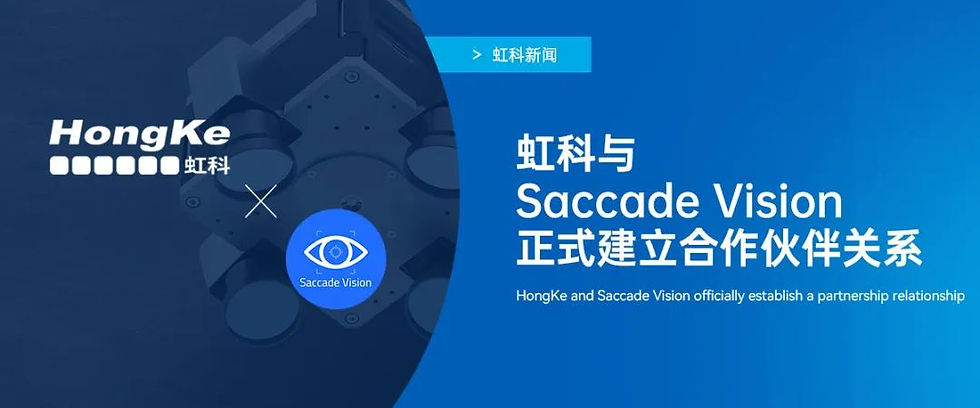Saccade Vision uses MEMS-based cameras to improve measuring and quality control
- Alex Shulman

- Jul 12, 2022
- 3 min read
Digitimes Asia, 11-07-2022
As humanity marches towards a future with autonomous vehicles, technology has not ceased to make breakthroughs in other industries. Saccade Vision creates a feature-based 3D scanning technology, similar to the lidar sensors used by carmakers, for the inspection and measurement sector to improve quality control and yields.

Left to right: CEO, VP product, CTO of Saccade Vision; Credit: Saccade Vision
Well aware of where improvements are needed in the inspection and measurement industry, the founders of Saccade Vision developed feature-based 3D scanning technology to reduce time, costs, and defect rates for manufacturers of industrial products.
The Israel-based startup was founded by three veterans in the inspection industry: Alex Shulman, Evgeni Levin, and Ran Sagi. Saccade means rapid eye movement. The scanning technology, like those adopted by automakers, is designed to simulate human vision. Saccade Vision's system uses a micro-electromechanical system (MEMS) laser illumination module as a light source that is able to scan from multiple directions.
Shulman stressed that "feature-based scanning" means the system can focus on certain parts of the object and obtain higher precision.
Less costs and higher yields
Quality inspection requires line workers to conduct repetitive work, day in, day out. Humans get tired of doing the job that requires precision; machines don't. In a way, robots can improve human lives by taking over boring jobs.
However, the reason why inspection has yet to become fully automated is that in many cases, the costs for application-specific automation are too high for companies to even consider. As the lifecycle of electronics shortens, it is simply not viable for manufacturers to invest in application-specific automation.
Developing application-specific inspection automation incurs high costs, and "these costs could reach five to 10 times higher than the costs of hardware and software inspection components," said Shulman.
Client feedbacks showed that Saccade Vision's feature-based scanning technology can reduce the overall costs for automation by 2-3 times. It reduces the hidden labor costs behind manual inspection while making the inspection robust and reliable. Moreover, "automation just increases yield rates, undoubtedly," he added.
Saccade Vision's solution can be applied to various applications. In the future, they hope to reach full automation. Although for some high-quality, high-precision products, it may still require qualified operators to monitor the process. In most cases, the computer will automatically gather the product manufacturing information (PMI) from CAD (computer-aided design) models.

Use case
Saccade Vision's largest use case is dimensional inspection, namely measurement of metal parts, post-CNC products, sheet-bending, stamping, plastic injection molding in sectors that require high-precision manufacturing and tight quality control – including EMS electronics manufacturing, automotive, aerospace, military, and others.
One of its clients is an S&P 500 electronics manufacturer, which has used Saccade Vision's technology to inspect so far over one million units and discovered some defects that the manufacturer was not even aware of.
Shulman said they are now working with equipment manufacturers, too, to integrate their 3D scanning technology and robotic automation – such as large Germany-based robotics solution provider and Italy-based Euclid Labs. The latter has integrated its feature-based scanning to assist metal-working suppliers.
In addition to industrial applications, Shulman added that future potential use cases range from medical imaging to logistics and other robot-related applications.
Supply chain

Such high-precision technology for sure requires very specific camera sensors. Amidst the semiconductor shortages, Saccade Vision needed more flexibility to manage its product design and supply sources. Shulman pointed out that they are now actively looking for suppliers worldwide for FPGA cameras.
Saccade Vision now has sufficient inventories to supply to manufacturers worldwide. With the pandemic hopefully behind us right now, the company now looks to expand from Israel, Europe to Asia and the US.
It has just wrapped its showcase at the Automatica trade fair in Munich in June.



Comments